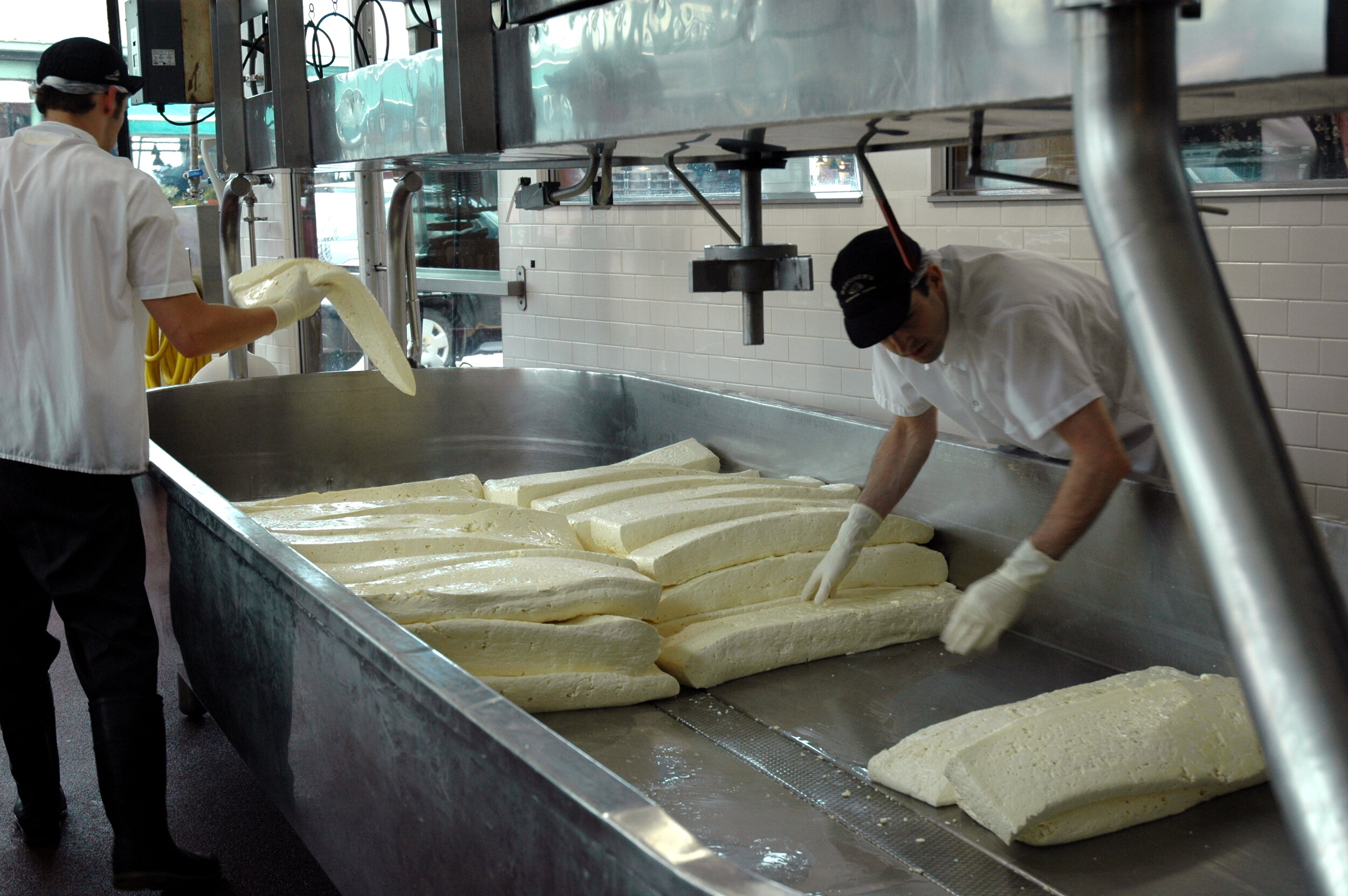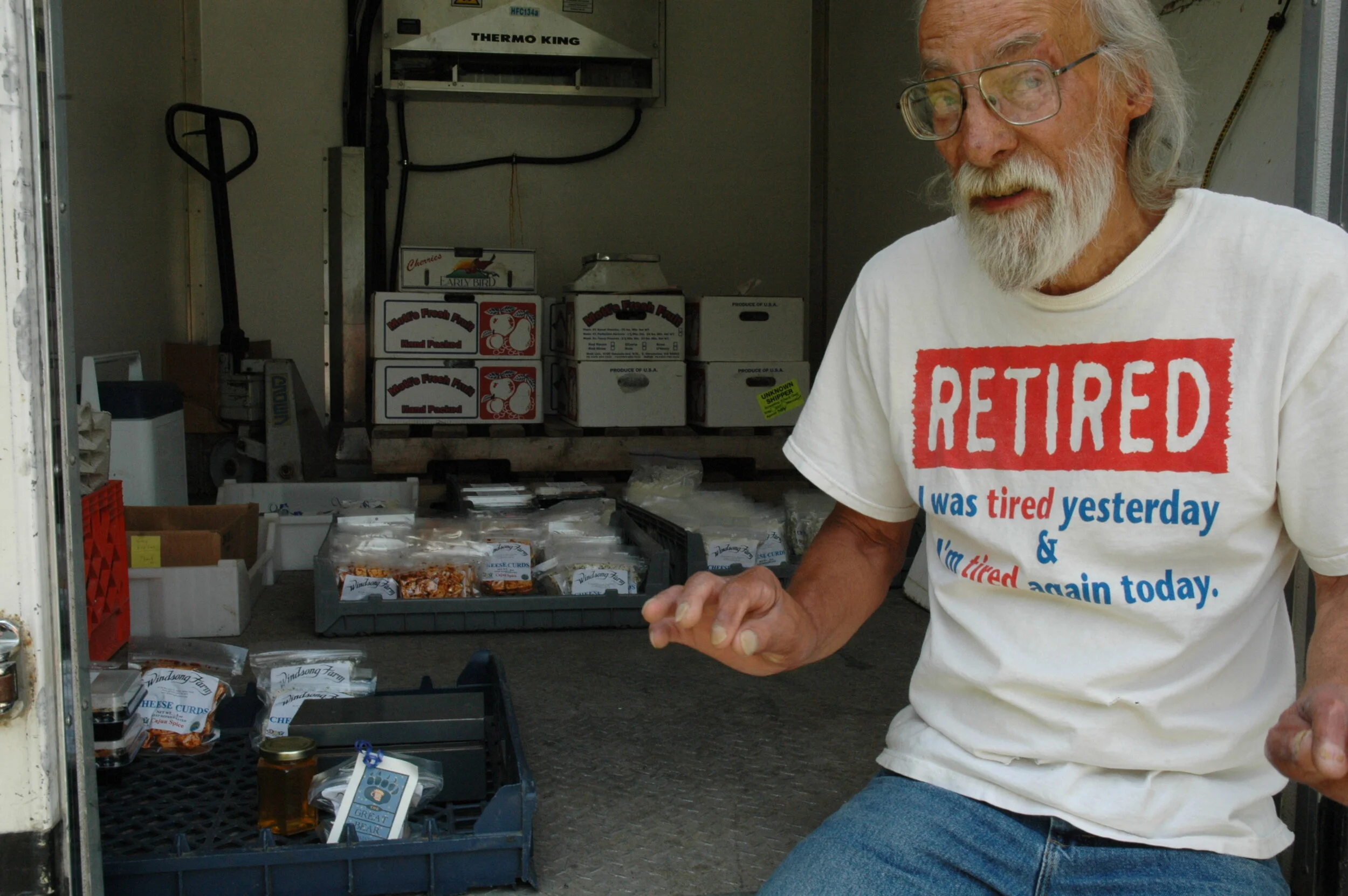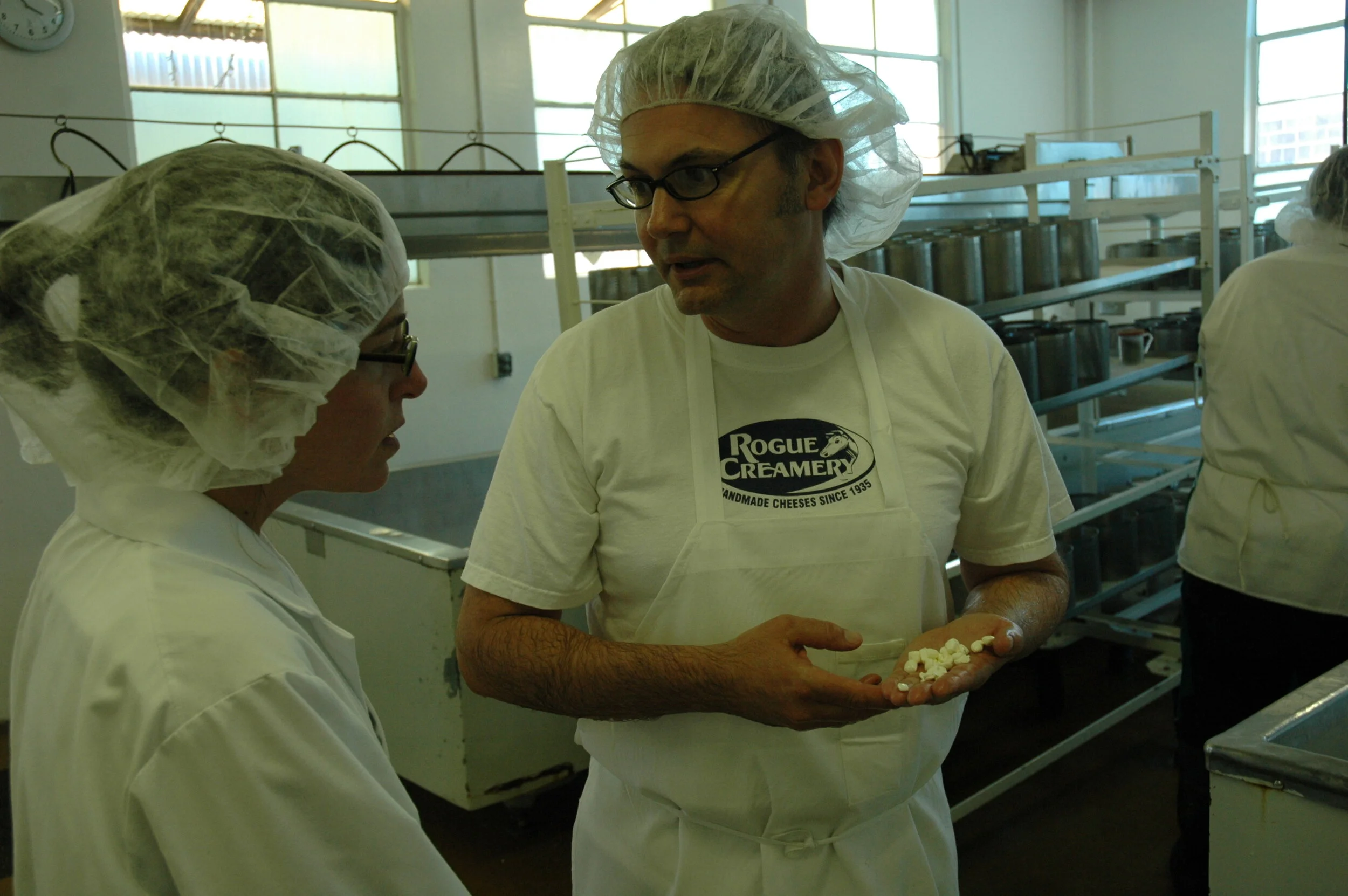Beecher's Handmade Cheese: Washington
August 2006
Name: Beecher’s Handmade Cheese
Owner: Kurt Dammeier
Location: Seattle, WA
Animals: Purchases milk from two cow dairies nearby downtown Seattle. One dairy has 120 cows and the other has 80. The breed breaks down to 80 % Jersey and 20 % Holstein between the two dairies.
Cheeses/Products: Flagship, Just Jack, Marco Polo, No Woman, Cheese curds (plain and flavored), Blank Slate (plain and flavored), Cultured Butter, some prepared foods too including Mac n’ Cheese made with their own Flagship cheese.
Kurt Dammeier is the first to admit that he kind of backed into the cheese business... he found the perfect location for cheesemaking, signed a lease, and went in search of milk, a cheesemaker, and a recipe after setting up his cheesemaking room. Milk turned out to be surprisingly tough to find in the quantity and, more importantly, of the quality he needed. There were a couple of dairies interested in working with him- largely because of recent changes in the local milk coop structure.
Beecher’s works with two dairies today, one has 120 cows and the other has 80. The mix has a Jersey majority with Holsteins making up the difference. This was done intentionally to get the right components for the cheese Beecher’s wanted to make. One of the farms that Beecher’s works with didn’t have the capital to invest in additional Jersey cows so Kurt purchased the cows to help them grow the herd.
We met Kurt in his office across the street from Pike Place Market. He talked us through his various businesses and partnerships and we began to understand that Kurt entered the cheese business with a different kind of thinking than most of the people we’ve visited. Knowing that he had capital to invest up front he decided to fill some holes he saw in the market. For example, he went with cows because most smaller farms opt to work with goats or sheep (they are easier to manage physically, require less land mass and are cheaper to purchase), and he created a cheese that ages for a year so as not to compete with others who might be operating on a tighter cash flow turn around than he needed to do. Basically he looked at the artisan cheese industry as a whole to understand where he could add value given that he had a certain amount of capital to invest and that his goal in this venture was to educate people about where their food comes from and how it is made.
We took a tour of his shop in the market which is also where his two large cheddar vats are (10,000 pounds/1,000 gallons of milk each)- a corner location with huge windows designed to achieve Kurt’s primary goal for Beecher’s: education. Around lunchtime the crowds swarm around the windows to watch cheesemakers working on the signature cheese called Flagship- a cross between cheddar and gruyere. They can stroll into the shop and taste fresh cheese curds and sample other Beecher’s cheeses. Outside of cheeses made by Beecher’s , the shop is focused on local, whole foods (no additives, preservatives, trans-fats, etc.). Other non-Beecher’s cheeses come from surrounding states- Montana, Oregon, California and of course other Washington state producers.
Kurt drove us out to one of the dairies they work with about 35 minutes outside of Seattle’s city center. As we drove Kurt explained the Beecher’s internal review of each batch of cheese. A select group of employees tastes every batch and determines whether it will go to the cheese counter to be sold as a table cheese, into the Beecher’s food products (i.e. mac and cheese), or gets held back to be submitted to upcoming competitions. Kurt shared some of his thoughts on the surge of cheesemakers entering the market. He said that, "...rising tide floats all boats," sounding like the entrepreneur he is. He feels confident that quality always pulls through and that competition pushes all in the industry to do better. Part of this confidence most likely comes from his experience as an investor in Pyramid Brewery and weathering the sea change in the micro-brew business.
The farm he took us to is called Cherry Valley Farm and has been a cow dairy since the turn of the century. The gentleman who runs it today is the third owner since the homestead and when he purchased it in 2002 it was not in operation. Slowly he is making structural improvements to the facility. We checked in on the calves and wandered out to the free stall barn where the ladies were milling about awaiting their next feeding. The farmer puts the cows out on grass as much as he can but rain prohibits him from relying on grass for a steady percentage of feed thus the cows are fed a total mixed ration (silage, grain and hay). The farm is working towards growing 100 acres of corn so they can produce their own silage. While we talked to the farmer we enjoyed watching the Holsteins and Jerseys quite a size difference between them- feed side by side.
Given that Beecher’s Handmade Cheese only began in 2002, it is awesome to see what a fixture it has become in the Pike Place Market. We were intrigued, but not particularly surprised, to hear that Kurt is tinkering with the idea expanding to have a farm of his own someday... knowing Kurt someday could be next week.






